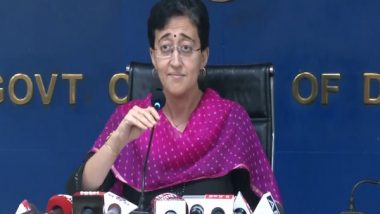New Delhi [India], September 8 (ANI): Delhi Minister Atishi on Sunday said that the central government would table a proposal to tax any online payments below Rs 2,000 done through payment gateways at 18 per cent, at the GST Council meeting scheduled for Monday.
Addressing a press conference here, she said her government and the party would oppose the proposal.
At present, online payments made through payment gateways are not taxed, she said.
"(Taxing them) will hurt small businesses and startups. We will oppose this proposal tomorrow at the GST Council meeting," she told reporters.
Further, she said she would oppose taxing research grants given to educational institutions.
"In August 2024, several educational institutions in the country were given show-cause notices by the central government for not paying GST. The central government is asking for a GST on research grants received from 2017 to 2024, including Punjab University and IIT Delhi... No country in the world imposes a tax on research grants... The central government has reduced the amount of research grants...," she said.
"Now that the educational institutions are raising grants on their own, through private or foreign institutions, the central government wants to impose GST on those grants also. and the Delhi government will raise this issue in the GST council tomorrow and demand GST exemption on research grants...," she added.
The 54th Meeting of the Goods and Services Tax Council or GST Council, will be held on September 9.
The GST Council, consisting of the Union Finance Minister and representatives from all States and Union Territories, was established to make decisions on various aspects of GST, including tax rates, exemptions, and administrative procedures.
The last meeting of the GST Council was held on 22 June 2024 this year.
The GST regime removed the inefficiencies and complexities of the previous archaic taxation system. Over the years, GST has, among others, simplified compliance and reduced the cascading impact of tax. Before July 1, 2017, the indirect tax regime was highly fragmented. The Centre and States were separately taxing goods and services.
The GST Council, a federal body comprising the Union Finance Minister as its Chairman and Finance Ministers of all States as members, has played its part in the forum.
A Finance Ministry study suggested that consumers saved at least four per cent of their household monthly expenses on an aggregate after GST. Thus, consumers now spend less on daily consumables like cereals, edible oils, sugar, sweets, and snacks. (ANI)
(This is an unedited and auto-generated story from Syndicated News feed, LatestLY Staff may not have modified or edited the content body)













 Quickly
Quickly
















